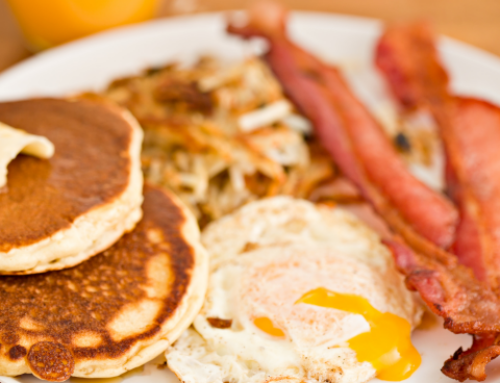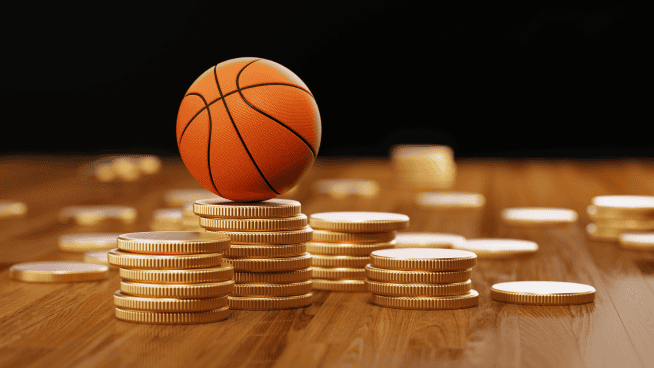Breakfast Suggestions for Top Performance
Research by: Jen Ochi, PT, ATC
Every cliché is based on a fact. Ever heard the “whole 9 yards?” This comes from the fact that the best suits are made from 9 yards of fabric. What about a “hat trick,” which now generically refers to any three accomplishments in a designated time? In Cricket, an English game, a bowler who could retire three consecutive batsmen with three consecutive balls—a major triumph in the game—was traditionally rewarded with a hat.
Here’s one. “Breakfast is the most important meal of the day.” If you’ve heard it once, you’ve heard it a thousand times. Jen Ochi, certified athletic trainer and nutritionist at The Cleveland Clinic Sports Health Department, sat down with STACK to unfold the truth of this cliché. Ochi explains why breakfast is especially important to an athlete and what to eat to make this meal the most effective.
Q: Why is eating breakfast important to athletes, in and out of season?
A: As an athlete, whether you are looking to lose a few pounds or gain muscle, eating a good breakfast is one of the most important things you can do to perform your best. Breakfast provides some of the essential nutrients needed to sustain energy levels through hours of practice, intensive weight training and even a long school day.
Eating breakfast in the morning helps stimulate the metabolism, which can be helpful for an athlete trying to lose weight. For an athlete looking to add a few pounds, the additional calories consumed at breakfast can help achieve that goal.
Q: What are potential negative effects of not eating breakfast or eating the wrong foods at breakfast?
A: Potential drop in blood glucose levels due to lack of glycogen (carbohydrates) can lead to fatigue, shortened attention span and a general feeling of sluggishness, all of which can be serious disadvantages to athletic performance. Glycogen is also the main fuel source for the brain. Without an adequate supply, an athlete can have problems with schoolwork.
Eating the wrong foods for breakfast, such as a meal high in fat and low in carbohydrates, can cause GI distress, stomach cramping and a feeling of heaviness—all of which can prevent an athlete from performing at his or her best.
Q: What types of food should an athlete eat for breakfast? Any differences in-season or out?
A: Breakfast should be composed of high carbohydrate foods such as pancakes or waffles, oatmeal, fruits, cereals and breads. Foods with protein also need to be included. This can be attained with skim milk, lean meats, yogurt and eggs.
For an athlete who is in season, consider the time of the event. For an early or mid-morning game, avoid foods that stay in the stomach, which may lead to feeling full or heavy. These foods, often high in fat, require a longer time to empty from the stomach.
If the athlete is out of season, food choices should depend on his or her caloric requirements and whether the athlete’s goal is to gain, lose or maintain body weight/lean body mass.
Q: How many calories should be consumed at breakfast?
A: 500 calories is a good general number to try to eat at breakfast.
Q: What percentage of calories should be from fat, protein and carbs?
A: Carbohydrates should comprise 50 percent of calories, protein 30 percent and fat 20 percent.
Q: Any specific foods that make for great breakfast choices or terrible breakfast choices?
A: An easy, healthy breakfast can be something as simple as a can of Slim Fast or a nutritionally balanced protein bar.
Q: Any final thoughts?
A: Athletes should remember that carbohydrates are the major source of energy for your body. Without an adequate supply of carbs, you will not perform at your best on the field or in the classroom.
Breakfast is also important for athletes who are looking to help achieve their weight gain/loss/maintenance goals. Eating a good breakfast will help set the tone for the rest of the day. Any healthy breakfast that provides energy for your workouts, games and practices is better than one that will slow you down or hinder your performance.
Good Breakfast Choices Include:
Carbohydrates—Grits, oatmeal, pancakes, waffles, bagels, cereal, whole grain breads, fruitsProtein—Eggs, peanut butter, cottage cheese, milk, yogurt, lean meats (i.e. Canadian bacon)Bad Breakfast Choices Include:
Carbohydrates—Candy bars, Pop Tarts, donuts, highly sugar-sweetened cerealsProtein—Fast-food breakfast sandwiches, high fat meats (bacon, sausage), sausage gravy
RECOMMENDED FOR YOU
MOST POPULAR
Breakfast Suggestions for Top Performance
Research by: Jen Ochi, PT, ATC
Every cliché is based on a fact. Ever heard the “whole 9 yards?” This comes from the fact that the best suits are made from 9 yards of fabric. What about a “hat trick,” which now generically refers to any three accomplishments in a designated time? In Cricket, an English game, a bowler who could retire three consecutive batsmen with three consecutive balls—a major triumph in the game—was traditionally rewarded with a hat.
Here’s one. “Breakfast is the most important meal of the day.” If you’ve heard it once, you’ve heard it a thousand times. Jen Ochi, certified athletic trainer and nutritionist at The Cleveland Clinic Sports Health Department, sat down with STACK to unfold the truth of this cliché. Ochi explains why breakfast is especially important to an athlete and what to eat to make this meal the most effective.
Q: Why is eating breakfast important to athletes, in and out of season?
A: As an athlete, whether you are looking to lose a few pounds or gain muscle, eating a good breakfast is one of the most important things you can do to perform your best. Breakfast provides some of the essential nutrients needed to sustain energy levels through hours of practice, intensive weight training and even a long school day.
Eating breakfast in the morning helps stimulate the metabolism, which can be helpful for an athlete trying to lose weight. For an athlete looking to add a few pounds, the additional calories consumed at breakfast can help achieve that goal.
Q: What are potential negative effects of not eating breakfast or eating the wrong foods at breakfast?
A: Potential drop in blood glucose levels due to lack of glycogen (carbohydrates) can lead to fatigue, shortened attention span and a general feeling of sluggishness, all of which can be serious disadvantages to athletic performance. Glycogen is also the main fuel source for the brain. Without an adequate supply, an athlete can have problems with schoolwork.
Eating the wrong foods for breakfast, such as a meal high in fat and low in carbohydrates, can cause GI distress, stomach cramping and a feeling of heaviness—all of which can prevent an athlete from performing at his or her best.
Q: What types of food should an athlete eat for breakfast? Any differences in-season or out?
A: Breakfast should be composed of high carbohydrate foods such as pancakes or waffles, oatmeal, fruits, cereals and breads. Foods with protein also need to be included. This can be attained with skim milk, lean meats, yogurt and eggs.
For an athlete who is in season, consider the time of the event. For an early or mid-morning game, avoid foods that stay in the stomach, which may lead to feeling full or heavy. These foods, often high in fat, require a longer time to empty from the stomach.
If the athlete is out of season, food choices should depend on his or her caloric requirements and whether the athlete’s goal is to gain, lose or maintain body weight/lean body mass.
Q: How many calories should be consumed at breakfast?
A: 500 calories is a good general number to try to eat at breakfast.
Q: What percentage of calories should be from fat, protein and carbs?
A: Carbohydrates should comprise 50 percent of calories, protein 30 percent and fat 20 percent.
Q: Any specific foods that make for great breakfast choices or terrible breakfast choices?
A: An easy, healthy breakfast can be something as simple as a can of Slim Fast or a nutritionally balanced protein bar.
Q: Any final thoughts?
A: Athletes should remember that carbohydrates are the major source of energy for your body. Without an adequate supply of carbs, you will not perform at your best on the field or in the classroom.
Breakfast is also important for athletes who are looking to help achieve their weight gain/loss/maintenance goals. Eating a good breakfast will help set the tone for the rest of the day. Any healthy breakfast that provides energy for your workouts, games and practices is better than one that will slow you down or hinder your performance.
Good Breakfast Choices Include:
Carbohydrates—Grits, oatmeal, pancakes, waffles, bagels, cereal, whole grain breads, fruitsProtein—Eggs, peanut butter, cottage cheese, milk, yogurt, lean meats (i.e. Canadian bacon)Bad Breakfast Choices Include:
Carbohydrates—Candy bars, Pop Tarts, donuts, highly sugar-sweetened cerealsProtein—Fast-food breakfast sandwiches, high fat meats (bacon, sausage), sausage gravy











